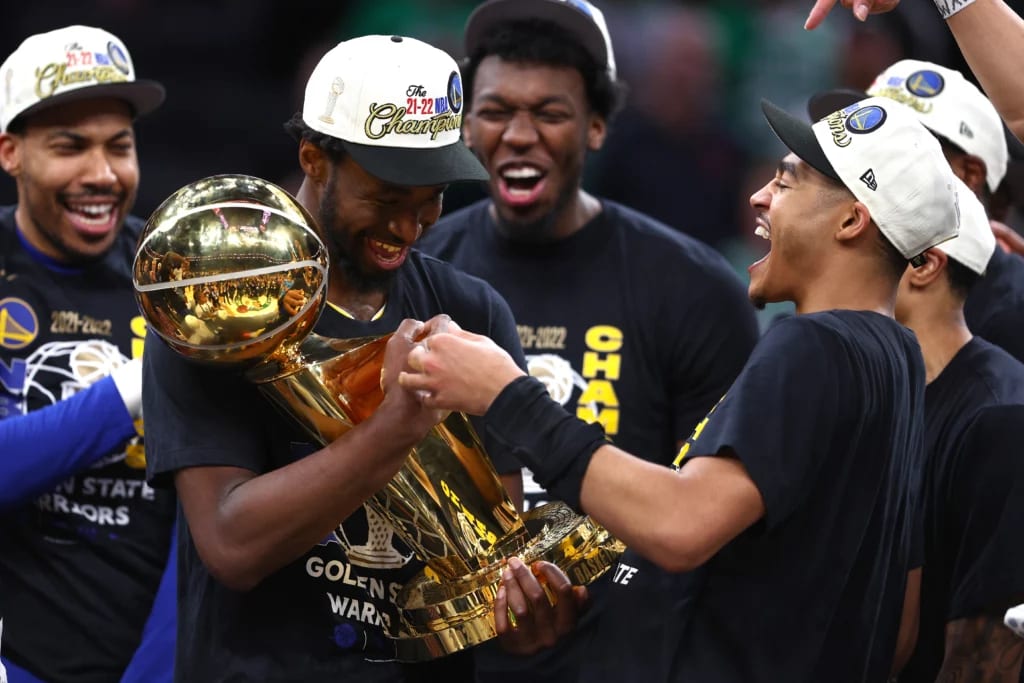In one of the more widely covered stories around the NBA, the Golden State Warriors are heading towards an inevitable break-up – or financial disaster.
With four extension-eligible players in the next two years, two of whom are core veterans, and two rising stars, the Warriors have tough decisions to make. Most likely, one of Draymond Green, Klay Thompson, Jordan Poole and Andrew Wiggins will not be wearing a Warriors jersey two years from now.
Owner Joe Lacob has already gone on record saying that the luxury tax bill needed to extend all four players is not realistic, meaning at least one player will have to go. Clarity on Golden State’s future direction is still primarily unavailable, but this past weekend, the Warriors got a valuable piece of intel on one piece of that puzzle.
On Sunday evening, the Miami Heat signed Tyler Herro to a four-year, $130 million extension, which was the first indicator of what Golden State may be forced to pay Jordan Poole if they opt to keep their young guard long-term.
What does Herro’s deal mean for Poole?
Tyler Herro and Jordan Poole are great comparisons for one another as players, which makes Herro’s extension a relevant barometer for Poole’s value.
Both are entering their fourth years in the NBA and are set to end next season at age 23. Both players put up similar numbers in year three:
Tyler Herro: 20.7 PPG, 5.0 RPG, 4.0 APG, 44.7% FG, 39.9% 3FG, 86.8% FT, 32.6 MPG
Jordan Poole: 18.5 PPG, 3.4 RPG, 4.0 APG, 44.8% FG, 36.4% 3FG, 92.5% FT, 30.0 MPG
Playing less minutes and taking less shots per game than Herro, Poole’s numbers were still nearly identical. When factoring in playoff success, Poole’s case for an even bigger contract really begins to grow.
The value of playoff performers
Bursting onto the scene in the 2020 bubble, Tyler Herro put the league on notice that postseason. Since then, his numbers have dropped off drastically in the playoffs, which is something Jordan Poole has avoided.
In Miami’s 2021 first round sweep, Herro averaged just 9.3 PPG on 31.6% from the field. While better last postseason, his numbers will still far from his regular season averages, posting just 12.6 PPG on 40.9% from the field. As previously mentioned, Jordan Poole has not yet faltered in a postseason setting.
Making his postseason debut just last year, Jordan Poole became an NBA champion, and his production did not decrease one bit. Averaging 17 PPG on 51/39/92 splits, Poole’s efficiency actually increased in the playoffs. This is not something many players can say, and while he will have to follow that up with a similar performance this year, Poole certainly has some leverage in extension talks with the Warriors.

